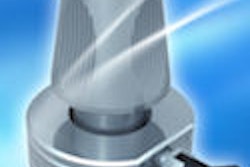
Dental implants have emerged as a popular treatment option for missing or damaged teeth, as they allow restorations with optimal functional and aesthetic results without damaging surrounding healthy teeth or tissues.
With an increasing number of dental implant systems on the market and the growing pressures of today's economic climate, choosing a less expensive implant platform to reduce costs for your office and patients can be tempting. However, not all dental implant platforms are created equal, and implant quality has a direct impact on patient satisfaction. It can also factor into the cost of running a practice.
So why choose a "premium" implant provider during an economic recession? Several factors beyond cost must be considered when choosing an implant platform to help satisfy increasing patient expectations:
- Have you selected a platform that is easy and efficient to use?
- Are you working with an established company that offers local representation, technical support, and a warranty on its products?
- Does the company continually invest in research and development, ensuring that you can count on safe products that incorporate the latest technological advances?
- Does peer-reviewed clinical data validate the products and technologies?
Keeping all these factors in mind will help you cut through the "clutter" of implant providers and select the best partner from a clinical and operational efficiency perspective.
Keeping up with the competition
To compete in today's dental market, it is important for general dentists to collaborate with local specialists to incorporate dental implant restorations into their practices. Dentists who are committed to improving their knowledge and skills when it comes to restorative treatment options will be able to reap the resulting financial benefits to their practice and also remain on the cutting edge of technology, ensuring superior patient outcomes and satisfaction.
Currently, about 100,000 dental implant procedures are performed each year. This represents a small portion of the potential number of patients who could benefit from dental implants. As dental implants continue to become safe and efficient procedures to perform, dentists who keep an inventory in their office can turn an implant restoration around very quickly, enabling the patient to walk out with a smile and increasing office profitability.
When it comes to the benefits of dental implants, the patient always comes first. For patients, dental implants represent a treatment solution that is closest to having their natural teeth and allows them to enjoy a higher quality of life. And for the dentist, patient satisfaction is always a win, resulting in increased referrals and a healthier business.
Today's economy and the restorative dentist
Despite the clinical reasons for incorporating implants into a practice, the recession's impact on dentistry cannot be ignored. An American Heart Association survey found that 57% of people say the economy has affected their ability to take care of their health, and 22% have skipped a routine dental care appointment.
Presumably, the number of patients opting out of what could be considered elective procedures is even higher. Of the 151 million people affected by tooth loss, about 7.5 million individuals are medically appropriate to receive implants. Yet only 12% of that group actually receives treatment with implants, despite their proven long-term superiority over other solutions.
We must be conscious of our patients' financial situation, but we should also be mindful of the long-term ramifications that can result from choosing a lower-quality and perhaps less expensive solution -- be it foregoing dental implants as an option altogether or choosing a less expensive dental implant provider. While implants may initially be more expensive than alternative treatments, with today's advancements it is often the superior solution for better long-term satisfaction and results in fewer follow-up appointments and procedures. Dentists should be encouraged to not assume that a patient or their insurance won't pay for the more expensive implant. At a minimum, implants should be discussed as an option with the patient when appropriate.
Choosing the right platform
The same theory holds true when choosing an implant platform. A myriad of providers are making the most of today's economy by promising lower-cost alternatives to name-brand implants. However, this is another case in which the less expensive option may not be in the best interest of the patient over the long term. When faced with selecting a dental implant platform, general dentists should consider several criteria to make an informed decision.
A primary factor in choosing a platform should be ease of use. Dentists and their staff must be able to quickly and easily become comfortable using the platform, streamlining introduction into the practice. It is important that the system does not come with many tools but instead supports the simplicity and success of implant restoration.
For example, some systems offer a single surgical kit, as compared to platforms that have multiple surgical kits for each type of implant offered. This enables the dentist to be trained on one kit, to quickly and easily fit many different restorations. Additionally, having options for both bone- and tissue-level implantation saves time and increases productivity in more simple cases. An easy-to-use system helps reduce complications that can lead to additional follow-up procedures and office visits, which frustrate the patient and practitioner alike.
Another critical factor is the amount of peer-reviewed outcome data specific to a particular platform. The literature shows that the best premium implant systems demonstrate lower failure rates than lower-end platforms.
Identifying an ideal partner company should also be a factor in selecting a dental implant platform. What makes a good partner? The vendor should be an established company with a demonstrated track record. The best vendors offer a warranty on their dental implants, adequate training to support their products, and local technical support when needed. Dentists should be aware that a vendor's warranty can be voided if generic or mismatched components are placed on a premium implant because of the very real risk of failure when implant components are used on platforms for which they weren't designed. While the upfront savings may be attractive, the cost to a practice in terms of replacement, lost time, and dissatisfied patients will be far greater than a $40 or $50 discount over the long term.
Having a designated local company representative can often prove invaluable as well, especially for dentists new to restoring implants. They may find themselves in a situation in which one-on-one training is necessary or personal support during a particularly difficult case is needed. A well-established company can provide such support. My experience has been with Straumann, which offers an easy-to-use abutment system that has been profitable for my practice. It's also predictable; I've used the system for 10 years and had consistently excellent results. This predictability results in greater patient satisfaction, which is perhaps the best support a growing practice can ask for.
While you will take cost into consideration when choosing a dental implant partner, it is something that you need to look past to ensure a long-term and positive relationship that is beneficial to your patients and also to your practice. Though it seems counterintuitive, choosing a premium provider in a tough economy can work in your favor.
Robert Margeas received his doctor of dental surgery degree from the University of Iowa College of Dentistry in 1986 and completed an advanced education in general dentistry residency in 1987. He is currently an adjunct professor in the department of operative dentistry at the University of Iowa. He lectures on aesthetic dentistry and has published numerous articles on the subject. He maintains a private practice in Des Moines, IA, and has been restoring implants since 1988.
Copyright © 2009 DrBicuspid.com



















